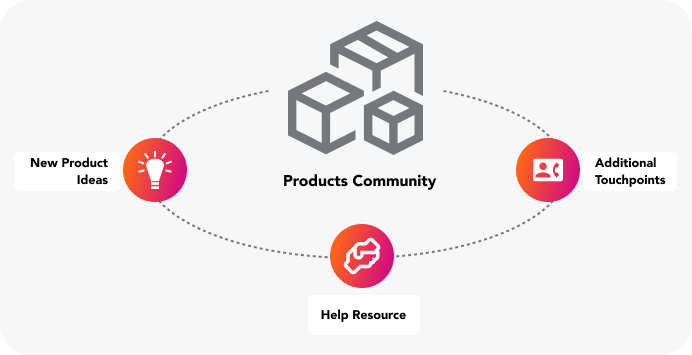The sales world is rapidly evolving as new technologies enable people to work and engage customers in new ways. And increasingly, companies are turning to artificial intelligence (AI) tools to understand what engages prospects and keep deals moving forwards.
We explored key trends in sales by speaking to Jason Hubbard, COO at RevGenius, on the latest episode of our B2B EQ podcast. Jason provided insight into the critical skills salespeople need to succeed and the importance of building a community around products.
Why Sales Reps Need Intellectual Curiosity
The podcast began by discussing soft skills impacting business relationships and revenue. And Jason told us that one of the most vital skills he looks for when hiring is intellectual curiosity and an employee’s drive to go out and broaden their horizons.
Jason said: “If you’re intellectually curious, you’re going to go out and learn things, constantly on the lookout for new things and the next edge. So it’s the most critical skill, but I’m not convinced it can be taught, and I’m 100% certain I suck at teaching it. But if you come with that and hustle, you can do just about anything.”
The best sales reps use this curiosity skillset to gain what Jason describes as a “game-changing level of intent.” Sales teams now have insights into data and signals that didn’t exist five to ten years ago, so people armed with curiosity can gain a competitive advantage and better help customers and prospects solve the problems they’re looking to fix.
Sales reps can also use creativity to address challenges around customer churn and technology bloat by helping businesses to implement and operationalize solutions. And Jason believes it’s the solution provider’s responsibility to educate customers.
He told us: “The people you’re selling to are rarely actually the people implementing the solution. Technology is a tool, and tools are only as effective as how you use or leverage them. But if you get hacky with things, you can make tools do a lot outside of their core competency.
“If you’ve got somebody on the other side that understands what you’re trying to solve, then you can do all kinds of things above and beyond as a power user. This also goes to the heart of tech bloat and having multiple solutions that can do the same thing. All of this comes down to people not understanding their tooling and what they’re able to do with it.”
Building a Community Around Products
The world’s leading businesses have successfully built communities around their products. This may often be two to four people within their company, but that could rise to 10,000 people globally within the community. And Jason outlined three benefits of establishing a community around products:

- It enables customers to have additional touchpoints with companies or providers.
- It establishes a resource that allows users to help each other, enabling companies to understand what people are struggling with and be better positioned to help them.
- Beyond this, companies can listen to users’ thoughts to generate new product ideas. These customers can become power users or evangelists who use products creatively. In return, companies can help customers feel appreciated by giving them access to development and product teams and encouraging them to spread the word about the company’s solutions.


Want to Learn More About Building Communities Around Products?
Check out our discussion with Jason Hubbard on B2B EQ.
Does the Classic Sales Approach Still Have Its Place?
As sales strategies evolve, whether traditional approaches, such as elevator pitches, are still relevant is questionable. Jason believes they are not, telling us: “By the time you’re talking to a customer, especially one who’s qualified, they’re already the majority of the way to a decision. Listen and lean in on where your strengths are, where your expertise is, and if you’re doing that and providing help within the community, the rest will follow.”
Additionally, Jason touched on whether metrics like requiring sales agents to make 100 calls or send 50 emails daily are still relevant. He provided an example from early in his career when one of his sales agents got flummoxed by a recipient picking up their call, which they viewed as “the worst thing that could happen.”
So rather than focusing on targets, companies need to encourage sales agents to nurture relationships and be more intentional about who, when, and what they talk about. This approach will make salespeople more valuable and gain recognition from senior management.
It also offers wider business benefits, as Jason told us: “You have no idea where that person is going to wind up. Some of the biggest deals can come from people who started at small organizations and moved to another or a small company you can grow with.”
Exciting Data and AI Possibilities
Companies have a wealth of new technology capabilities to enhance their sales processes, from automation and data to AI and machine learning. As Jason said: “The democratization of data orchestration and CDPs are like marketing automation was 15 to 20 years ago; an enterprise thing because so it was so complex and expensive. But now you’ve got different companies bringing that down to the SMB level and starting to stack layers together.”
For example, businesses can now feed data sets into AI tools, which frees up teams to work on deep dives into the insights and questions produced. As a result, salespeople can take on more tasks that truly add value, rather than assuming AI technology exists solely to make their lives easier.
Explore Sales Possibilities with Uniphore
Uniphore helps companies to maximize the value of every conversation, enabling them to emotionally connect and engage customers more efficiently and effectively through AI technology.
